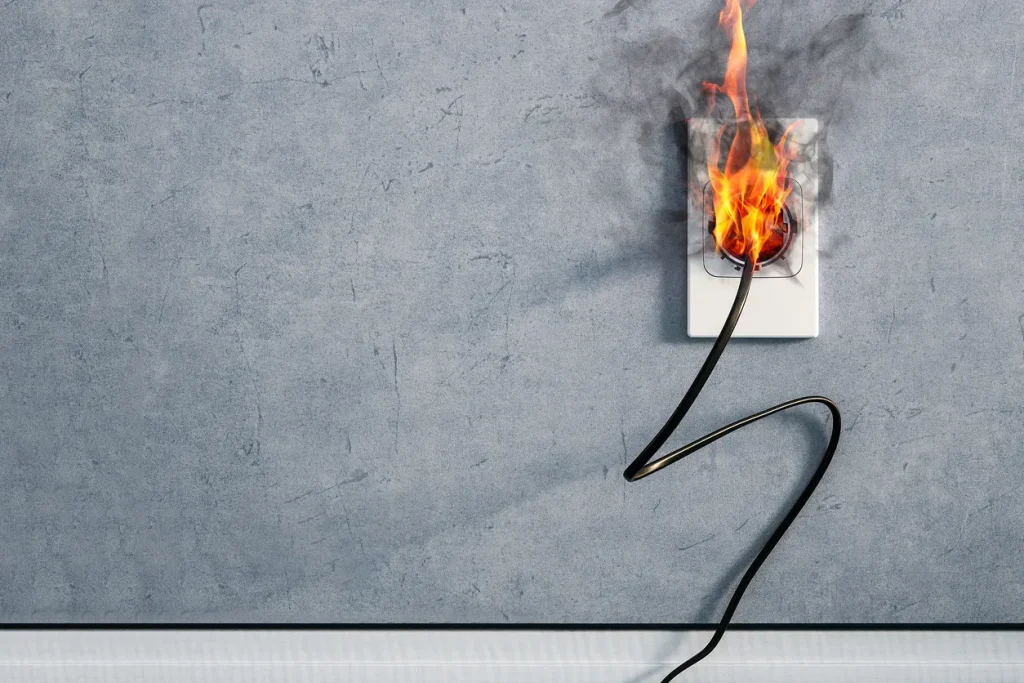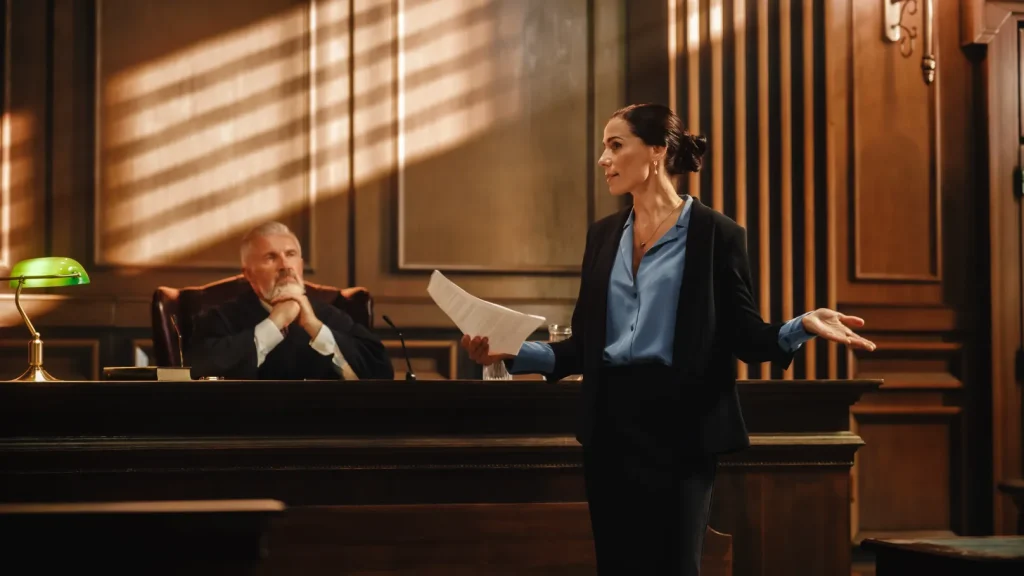Navigating the complex world of child custody can be daunting, especially when the safety of your child is at stake. The importance of a secure home environment cannot be overstated, as courts prioritize the well-being and protection of children in custody cases.

When you work with The Love DuCote Law Firm LLC, you’ll learn the issue of sole physical custody and its potential implications for both parents and children. We will explore the factors courts consider, the significance of a safe home environment, and the role of a family law attorney in achieving the right outcome for your family. One question that often arises is, “Can I get sole physical custody if the other parent has a house that is unsafe?” We will address this concern and guide how to manage this challenging situation.
Reach out to us for a consultation to discuss your specific case. Our experienced family law attorneys at The Love DuCote Law Firm LLC are dedicated to providing personalized and strategic legal guidance to help you understand your rights and options in matters of sole physical custody. Whether you are seeking to establish sole physical custody due to safety concerns or are responding to such allegations, we are here to advocate for your interests.
During the consultation, we will listen to your unique circumstances, explain the legal process, and outline potential strategies tailored to your situation. Our goal is to empower you with the knowledge and support needed to make informed decisions that prioritize the well-being of your children.
At The Love DuCote Law Firm LLC, we believe in fostering a compassionate and client-centered approach to family law. We understand the complexities and sensitivities involved in custody matters, and our team is committed to helping you direct the legal system with confidence.
Take the first step towards securing a stable and nurturing environment for your family. Call us today at 832-471-6904 to schedule your free consultation. Let us be your advocates in achieving a resolution that prioritizes the safety and happiness of your children.
Understanding Sole Physical Custody
Sole physical custody, also called sole parental responsibility, is an arrangement in which a single parent has the exclusive right to the legal and physical custody of the child, including sole legal custody. This means that the custodial parent has primary responsibility for the child’s living arrangements, while the non-custodial parent may have visitation rights. Understanding how sole legal custody works can help parents guide this complex process.
Sole physical custody may be deemed appropriate in situations where:
- One parent is more capable or accessible to make judicious legal decisions
- The other parent travels extensively
- The other parent relocates to another state
- The other parent displays issues with substance abuse, child neglect, or domestic violence.
Having sole physical custody comes with its own set of pros and cons. On the one hand, the custodial parent can make decisions without consulting the other parent, and this may influence child support arrangements. On the other hand, the non-custodial parent may feel excluded, and the child may feel disconnected from the other parent. Careful consideration of these factors is necessary when deliberating sole physical custody.
As an alternative to sole physical custody, joint legal custody may be granted, wherein both parents share the responsibility for making decisions regarding the child’s upbringing. In this arrangement, both parents actively participate in their child’s life, promoting balanced and collective decision-making.
Factors Courts Consider in Child Custody Cases
In child custody determinations, courts consider several aspects including:
- The child’s interests
- Each parent’s ability to provide a safe home
- Child safety
- Each parent’s financial capacity for child support
The welfare of the child and their overall well-being in their daily life is the paramount consideration in child custody cases, even during a child custody battle, as it directly impacts the child’s life. Ensuring that parents pay child support is also crucial for the child’s well-being.
Judges in family court make decisions on child custody based on “the interests of the child.” This determination incorporates various elements such as:
- The living conditions of parents
- Each parent’s aptitude to care for the child
- The child’s rapport with each parent
- Any other elements that might impact the child’s welfare
For example, if one parent has a history of mental illness that could pose a danger to the child, such as recurrent hospitalization or volatile outbursts, this may influence the case in favor of the other parent.
An unsafe living environment is another crucial factor in child custody cases. Judges will consider the potential implications of a parent’s living arrangements on the child’s well-being, including any indicators of child abuse or neglect. In these situations, courts may grant sole physical custody to the parent with a safer home environment to protect the child’s interests.
The Importance of a Safe Home Environment

In child custody cases, a secure home environment is crucial as courts emphasize the child’s welfare and safeguard against potential harm. The court assesses the home environment’s safety by checking for risks of:
- physical, emotional, or mental abuse to the child or parent
- neglect or lack of supervision
- exposure to domestic violence or substance abuse
- unsafe living conditions or hazards
The evidence is analyzed to confirm that the child’s security remains the top priority. The court may also take into account factors such as each parent’s capacity to provide a safe and nurturing environment and the overall stability of the home environment.
During child custody evaluations, indicators of a potentially unsafe home may include:
- Behavior that poses a danger to the child’s well-being and health
- Signs of abuse such as isolation, withdrawal, emotional outbursts, poor performance in school, and physical injuries
- Evidence of bad co-parenting behaviors
In cases where an unsafe home environment is established, the court may grant sole physical custody to the parent with a safer home to protect the child’s interests.
The potential ramifications of an unsafe home environment may include physical, emotional, and mental harm to the child. Furthermore, the court may consider the potential for long-term damage to the child’s growth and welfare. This highlights the importance of addressing any concerns about the other parent’s home environment during a custody dispute.
Proving the Other Parent’s House is Unsafe
To validate that the other parent’s house is unsafe, accumulating supporting evidence is crucial. Official documents, medical records, police reports, and photographs can carry significant weight in establishing that the other parent’s home environment is detrimental or unsuitable for the child. For example, reports from child protective services, testimony from witnesses, and court orders or judgments can be used as evidence to demonstrate the unsuitability of a parent’s house for a child.
Photographs serve a significant function in depicting an unsafe environment in the other parent’s residence. They can provide visual proof of inadequate conditions, such as uncleanliness, hazards, or neglect, and can be used as evidence in court to support your claim.
In addition, you can request that the other parent furnish a photograph of the child on a day they allege to have visited but did not, to substantiate long absences between visits. By gathering strong evidence, you can build a compelling case for sole physical custody based on the unsafety of the other parent’s home.
Steps to Request Sole Physical Custody
There are multiple steps involved in requesting sole physical custody. Here is a step-by-step guide:
- Consult with a lawyer to understand the custody terms desired and to guide you through the process.
- File a custody or termination petition in the court where the child is a resident or in the court that presides over the case.
- Complete the parent-child relationship petition document at the courthouse, indicating a request for sole physical custody.
To present a credible case that demonstrates why sole physical custody is in the interest of the child and why the other parent’s rights should be terminated, follow these steps:
- Gather evidence of the other parent’s unsafe home environment, their inability to provide proper care or any history of abuse or neglect.
- Present your case to the court and provide any necessary evidence or documentation to support your request.
- Seek legal advice specific to your situation to ensure a favorable outcome.
The court will review the evidence and consider the interests of the child when deciding on your custody request. Depending on the circumstances, the court may grant sole physical custody, joint custody, or other alternatives based on the child’s well-being and the parents’ ability to cooperate in decision-making.
Role of a Family Law Attorney in Custody Battles

In custody battles, a family law attorney is pivotal, offering legal representation and advice. They can help build a strong case for sole physical custody, ensuring the child’s interests are prioritized, and the legal process is handled effectively.
Teaming up with a family law attorney is indispensable when seeking sole custody. They can provide legal counsel and help build a convincing case. A child custody attorney can conduct relevant research, undertake necessary investigations, and manage parental responsibility cases expeditiously to guarantee the welfare of the child.
Maneuvering the complexities of child custody cases can be challenging, and having an experienced attorney such as The Love DuCote Law Firm LLC by your side can make all the difference. From gathering evidence to presenting a persuasive argument in court, our family law attorneys can help you achieve a positive outcome for your family.
Potential Outcomes and Alternatives to Sole Physical Custody
Depending on the child’s well-being and the parents’ collaborative decision-making abilities, courts may award sole physical custody, joint custody, or other alternatives. Joint custody is an arrangement where both parents share the responsibility of raising their child following a divorce or separation, either through joint physical custody, where the child spends equal time with both parents or joint legal custody, where both parents possess equal decision-making authority.
Some alternatives to sole physical custody include split physical custody, where siblings are divided between the parents, and bird’s nest custody, where the child remains in one residence and the parents rotate living with them. These alternatives aim to minimize disruption to the child’s life while ensuring both parents are actively involved in their upbringing.
When considering the potential outcomes of a custody case, it is essential to prioritize the child’s well-being and emotional development. Regardless of the custody arrangement, maintaining open lines of communication and cooperation between parents is crucial for the child’s mental health and stability.
Coping with Co-Parenting Challenges
Even without the granting of sole physical custody, co-parenting challenges can emerge. Addressing these challenges requires effective communication, compromise, and a focus on the child’s well-being. Some strategies for successful co-parenting include:
- Communicating openly and honestly
- Establishing boundaries
- Concentrating on the child’s needs
- Being accommodating
Negative co-parenting can have a significant effect on a child’s mental state, leading to heightened stress, anxiety, and emotional instability. Parents must prioritize healthy co-parenting practices to reduce the detrimental effects on their child’s well-being.
Parents can surmount co-parenting challenges and foster a stable, nurturing environment for their child by collaborating and prioritizing the child’s needs. This collaborative approach ensures that the child’s emotional development and mental health are prioritized throughout the co-parenting process.
How The Love DuCote Law Firm LLC Can Help You
The issue of sole physical custody and the importance of a safe home environment for a child’s well-being are crucial considerations in child custody cases. From understanding the factors courts consider to proving the other parent’s house is unsafe, navigating the legal process can be complex and challenging. A family law attorney, such as those at The Love DuCote Law Firm LLC, can provide invaluable guidance and representation to help you achieve the right outcome for your family.
As you face the challenges of co-parenting and the pursuit of the interests of your child, remember the importance of prioritizing their emotional development, mental health, and security. Collaborating with experienced legal professionals and focusing on your child’s well-being will ensure a brighter future for your family.
The Love DuCote Law Firm LLC provides legal counsel and guidance in child custody cases, aiding clients in securing positive outcomes for their families. Our firm has extensive experience and comprehensive knowledge in managing cases, with numerous jury trial verdicts in favor of clients.
The Love DuCote Law Firm can assist with the following cases:
- Divorce
- DWI/DUI
- Child custody
- Criminal defense
- Juvenile defense
By working with the dedicated team at The Love DuCote Law Firm, you can ensure that your child’s well-being is prioritized and that your case is handled professionally and efficiently. Clients describe the team as kind and professional, praising the attorneys for their knowledge, experience, and ability to handle tough times.
For more information on how The Love DuCote Law Firm LLC can help you navigate the complexities of child custody cases, call us at 832-471-6904 to schedule a consultation.
Frequently Asked Questions
How do I prove my ex is mentally unstable?
Gathering medical or mental health records, testifying about your observations, obtaining documents related to the other parent’s substance use disorder treatment, and collecting records from a mental health evaluation are all methods that can be used as evidence to prove that your ex is mentally unstable.
Will my child be taken away if I have BPD?
The court may consider your BPD (bipolar disorder) in deciding custody, however, it will not automatically lead to losing your children. There are circumstances where parental rights could be terminated if the illness affects the child’s well-being.
What is the difference between sole physical custody and joint legal custody?
Sole physical custody means one parent has exclusive legal and physical custody of the child, while joint legal custody means both parents share responsibility for decisions regarding the child’s upbringing.
What are some alternatives to sole physical custody?
Alternative custody arrangements to sole physical custody include joint custody, split physical custody, and bird’s nest custody.
How can a family law attorney help in a child custody battle?
A family law attorney such as The Love DuCote Law Firm LLC can provide legal representation and guidance, conduct research and investigations, and manage parental responsibility cases to help ensure a favorable outcome in a child custody battle.
















